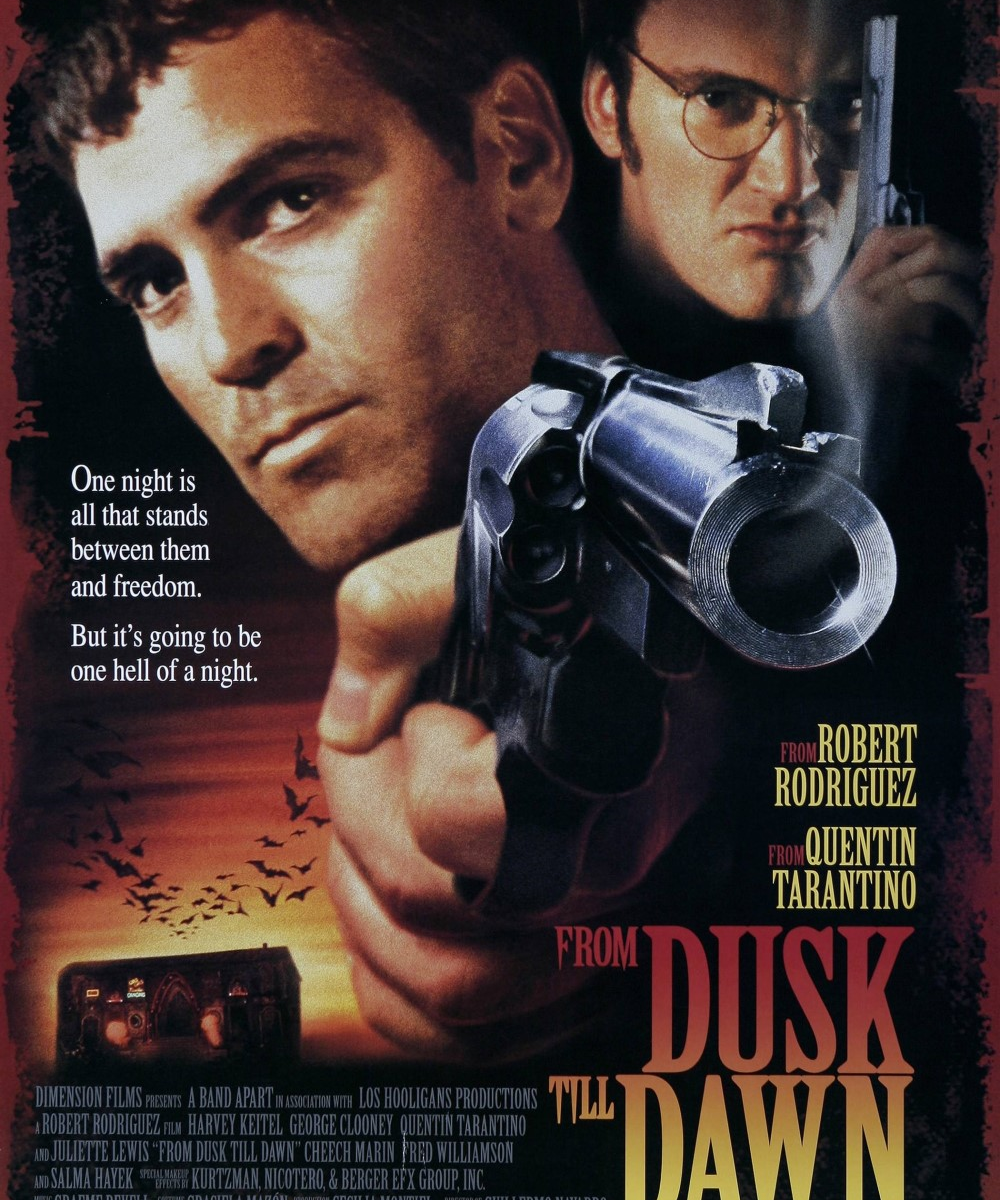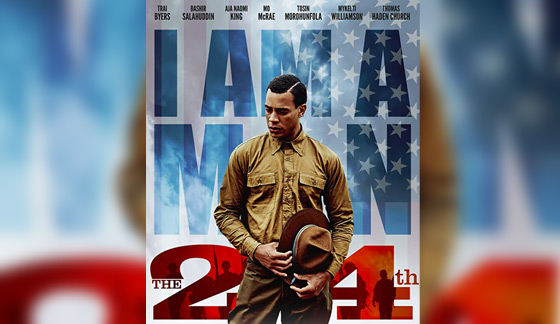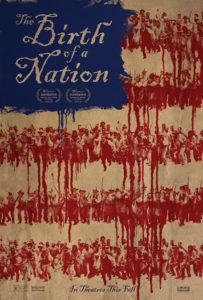Starring: Trai Byers, Aja Naomi King and Bashir Salahuddin
Directed by: Kevin Willmott
Rated: NR
Running Time: 113 minutes
Vertical Entertainment
“Death is the price for a night of justice…”
More so than ever, at least in my lifetime, African-American cinema and storytelling is pertinent to the world around us right now. As I write this, George Floyd was murdered nearly three months ago and the world got a firsthand look at the carelessness and brutality of Minneapolis police officer Derek Chauvin. A movie like “The 24th” serves as a reminder that there’s still a lot of work to do in America because our savage history isn’t that far behind us.
“The 24th” focuses on several weeks in the long history of the 24th U.S Infantry Regiment, one of America’s all-black regiments. Specifically, the movie turns its gazing eyes towards Texas, where the 24th is stationed, in August, 1917. With the eyes of the world on Europe and WWI, the eyes of the 24th were set on injustice all around them. Despite being soldiers who were ready to lay their lives down for America, they were soldiers and humans who were viewed less than by the people of Houston.
The first act establishes that the Houston Police Department and several citizens don’t respect the 24th, and the film shows the police and locals several times being the instigators of conflicts in the area. A lot of it is unsettling, but necessary. The problem with the first act, is that we don’t get to spend enough time with the 24th on human level. Before we can truly get to know each one of these men, we’re shoved towards conflict and a bitter resolution. Not to say that the conflict isn’t mortifying and riveting from a storytelling perspective, but it’d be nice to relate with these men before the final act.
Writer and director, Kevin Willmott, has proven countless times since his film, “C.S.A.: The Confederate States of America” in 2004, that he’s able to handle race relations, and the history behind it, in a nuanced and powerful way. I tend to believe that his best work comes when he has someone else behind the camera though. “The 24th” is a harrowing movie movie, with some of the dialogue being near-perfect, accompanied by some excellent acting behind those words. The problem is, it’s not great and I’ve come to expect greatness after Willmott’s work with Spike Lee in “Blackkklansman” and “Da 5 Bloods.”
Regardless of my criticisms, so much of human history is forgotten. Sometimes it’s because it genuinely was inconsequential, and other times it’s because history is sometimes viewed through a lens. So how did the largest murder trial in American history seem to be forgotten? It wasn’t, it was simply ignored. Thankfully Willmott brought this history to life and gave viewers, like me, a much welcome history lesson.



